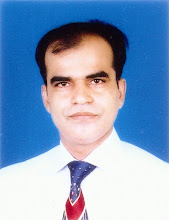The Telegraph
July 27 , 2008
Pens dipped in vitriol have described the terrible blot perpetrated by the attempt to bribe members of parliament during the trust vote in the Lok Sabha.
That such an episode revealed the most seedy aspects of India’s political life goes without saying. What is worse is that it was allowed to happen within the hallowed portals of parliament. No one has yet answered the question as to how a group of members of parliament entered the house with bags containing large amounts of money. It is necessary to segregate what happened within parliament from what happened outside it.
They are related — and both deserve to be condemned — but they need to be discussed separately.
It is difficult to believe that senior leaders of the Bharatiya Janata Party, like L.K. Advani, were unaware that MPs belonging to the BJP would be making such an exhibition in the Lok Sabha. Yet such a thing occurred.
This shows one of two things. One, that even veteran parliamentarians like Mr Advani have lost all respect for basic parliamentary conventions and decorum. They are willing to go along with anything so long as a few points can be score against the government and the latter embarrassed.
The other is that they are unable to control their party’s MPs and to educate them in the codes of parliamentary behaviour.
Outside the Lok Sabha was carried out the botched attempt to bribe MPs.
Outside the Lok Sabha was carried out the botched attempt to bribe MPs.
The debate about whether the attempt was actually made or was in fact a plant to disrupt proceedings in parliament hides two very important things. One is the almost universal acceptance that Indian politicians are quite capable of giving and receiving bribes.
In fact, the general feeling is that they are capable of far worse. The other is the role that money has come to play in the political life of the country.
There exist far too many instances of this to make a list. The role of money extends from funding political parties, planting questions in parliament to buying MPs and even eliminating political rivals through hired killers.
There is a consensus of condemnation, but no agreement on how this pernicious influence can be reduced and removed. Like many other blots, this remains a feature of Indian democracy. Unless this problem is addressed, attempts at bribing MPs will continue to recur.
The deepening of democracy is bringing within the ambit of political life large groups of people who are ignorant about the Westminster style of politics and governance.
The deepening of democracy is bringing within the ambit of political life large groups of people who are ignorant about the Westminster style of politics and governance.
The deepening is the strength and pride of India’s democracy; and the violation of the Westminster codes of conduct the weakness and shame of Indian democracy.
This is the great paradox of the Indian polity. To only curse what happened without noting the paradox is to notice just the surface ripples without taking cognizance of the deep currents that are moving Indian politics.






